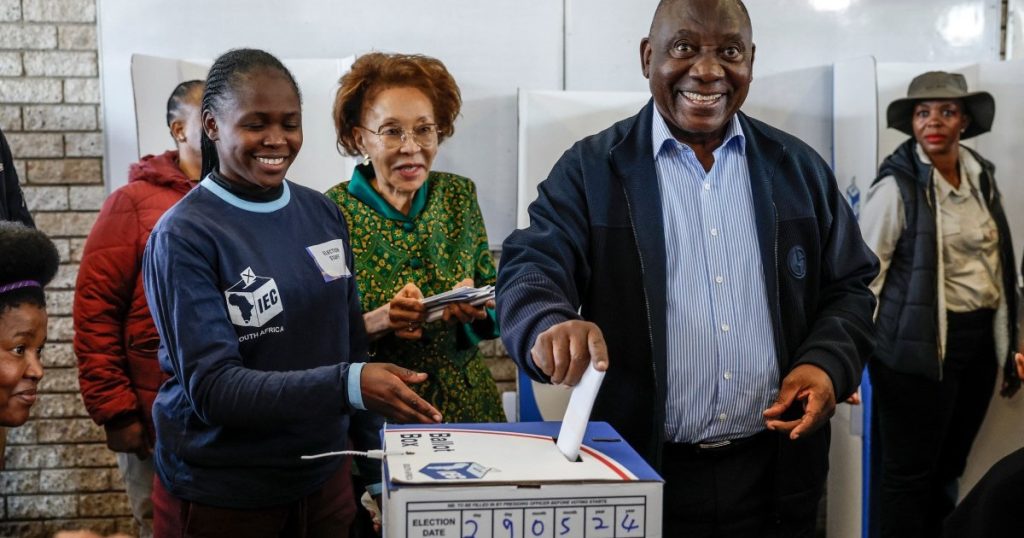South Africa’s ruling party, the African National Congress (ANC), has lost its majority in the country’s election for the first time since the end of apartheid. The ANC is now in negotiations with other parties to form a coalition government, marking a significant defeat for the party that led the country’s liberation. President Cyril Ramaphosa, who had hoped to lead the party into another term, is facing pressure to step aside after the party’s poor performance in the election.
The Democratic Alliance, the principal opposition party, has secured 21 percent of the vote, while former President Jacob Zuma’s uMKhonto we Sizwe (MK) party has won almost 15 percent of the national vote. MK’s success has eroded the ANC’s core voting base, especially in KwaZulu Natal province where the party has won 45 percent of the vote. Zuma’s party has ruled out forming a coalition with the ANC unless Ramaphosa is removed from power.
The decline in ANC’s voter support is attributed to issues such as deteriorating public infrastructure, social inequalities, rising crime, and high unemployment rates. Ramaphosa and other ANC officials have also faced personal corruption scandals, with the president facing a vote of no confidence. The rivalry between Ramaphosa and Zuma, which dates back to 2018 when Zuma was forced to resign, has led to further division within the party.
Ramaphosa remains popular within the ANC, making it difficult for the party to replace him despite its electoral losses. Analysts suggest that a grand coalition with the Democratic Alliance might offer a more stable governing alliance for South Africa. While the two parties have deep differences, they may need to work together to address the challenges facing the country, including boosting investor confidence in the economy.
An ANC-DA coalition could provide stability and help rehabilitate government institutions that have been weakened. Another option could be a national unity government, similar to the one Nelson Mandela headed after coming to power in 1994. However, both options come with potential challenges as different parties may try to undermine each other within the government.
The ANC must carefully consider its leadership decisions in order to stabilize the party and prioritize the needs of the country and its people. Removing Ramaphosa from power may not necessarily lead to the party’s recovery, and the ANC must focus on rational and pragmatic solutions for the benefit of the nation. The future of South Africa’s government and political landscape remains uncertain as the ANC navigates through a period of change and transition.


